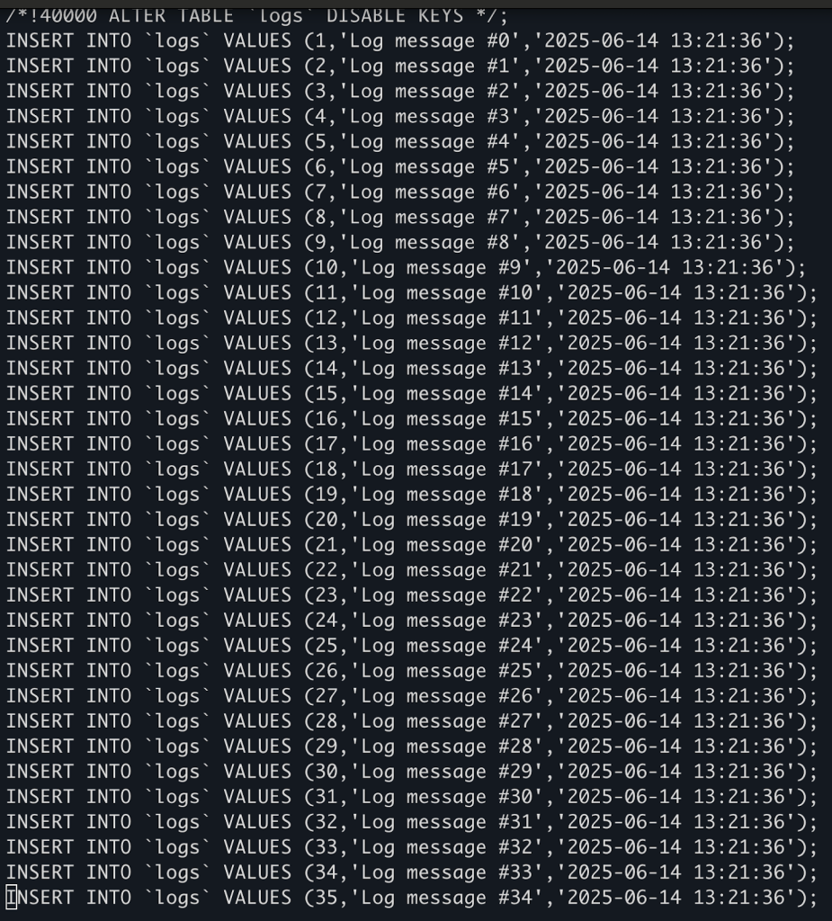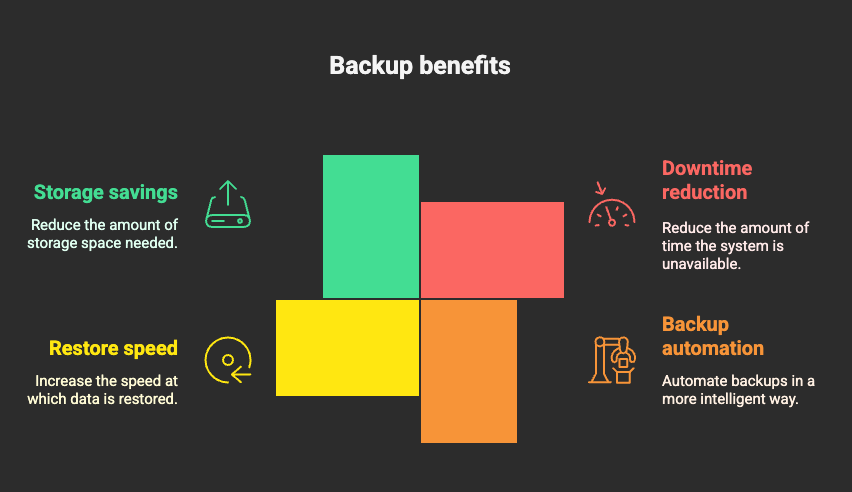Backup Like a DevOps Pro: 8 mysqldump Tips You Probably Didn’t Know
Introduction
If you have worked with databases, you might have definitely crossed paths with MySQL, and probably used mysqldump at some point. It’s a go-to utility for backing up MySQL databases. But let’s be honest — most of us use it in its basic form and forget about it. Here’s the thing: MySQLdump is way more powerful than we give it credit for. With the right flags and tricks, you can make your backups faster, more reliable, and even minimize downtime—all of which matter when you’re running production systems.
Let’s explore 8 mysqldump tips that are underappreciated but incredibly helpful and that every DevOps engineer should be aware of.
Tips
1. Only Schema, No Data Needed? Make use of –no-data
Sometimes all you want is a dump of the database structure, including tables, triggers, and indexes, but without the actual data. This could be when we have to replicate a schema for spinning up new environments, or it could be required for CI/CD pipelines.
mysqldump --no-data -u root -p devops_demo > schema.sql
This is ideal in case when you don’t want to wait for the export of millions of rows and only database schema is enough.
2. Regular Backups Without Locking? –Your Friend Is the Single Transaction
It’s not best practice in production to run mysqldump on a live database that is being queried regularly because it can lock tables and affect application performance. If your tables are InnoDB-based, simply use:
mysqldump --single-transaction -u root -p devops_demo > consistent_backup.sql
Without locking the tables, it can consistently take a snapshot
3. Ignore Unwanted Tables (such as Audit, Temporary, or Logs)
Do your backups contain large log or audit tables that you don’t need while taking backups? Leave them out in this way.
mysqldump --ignore-table=devops_demo.logs -u root -p devops_demo > no_logs.sql
For more than one table, you can use –ignore-table again. As a result your dumps stay focused and lean.
4. Faster, Smaller Dumps with Longer Inserts
Mysqldump employs extended inserts by default, which combine several rows into a single INSERT. This reduces the size of the dump and speeds up restoration. Do you want to turn it off, for example, for readability or Git diffs?
mysqldump --skip-extended-insert -u root -p devops_demo > readable.sql

skip_extended_insert
Note: For large backups, keep the extended inserts in place. Only turn it off when performing schema versioning or debugging.
5. Do You Want to Lock Everything? Make use of –lock-all-tables
If your app can handle a brief pause, do you need a completely consistent dump? During the dump, lock every table:
mysqldump --lock-all-tables -u root -p devops_demo > locked_dump.sql
This is particularly helpful for non-transactional engines.
6. Conserve Space by Instantaneously Compressing Dumps
Large backup files are disliked by everyone. While dumping, compress them:
mysqldump -u root -p devops_demo | gzip > compressed_backup.sql.gz

compressed_backup
And to restore:
gunzip < compressed_backup.sql.gz | mysql -u root -p devops_demo
Works great for nightly cron jobs or CI/CD pipeline artifacts
7. Maintain Your Events and Routines
It’s simple to forget stored procedures, functions, and scheduled tasks. Unless you specify otherwise, mysqldump automatically ignores them.
mysqldump --routines --events -u root -p devops_demo > full_backup.sql
Include this in your regular backup process, particularly if your application depends on database cron jobs or custom procedures.
8. Do you have a big database? If mysqldump isn’t enough, try mydumper.
The single-threaded nature of mysqldump is a bottleneck for large datasets, let’s face it.
Check out mydumper for quicker, parallelised dumps and restores. It is made for extensive MySQL backups and is DevOps-friendly.
Final Thoughts
Backing up databases isn’t just a DBA’s job — in DevOps, we own uptime, recovery, and reliability. Knowing how to use mysqldump like a pro helps you:
- Minimize downtime
- Automate smarter backups
- Speed up restores
- Save storage space

backup_benefits
These tips aren’t fancy — but they’re practical, and that’s what matters in real-world systems. We at TO THE NEW can help you manage your databases efficiently and smartly. Our certified Devops Engineers and Database administrators specialize in building efficient, reliable, and scalable backup strategies for your critical databases.
Next time you touch a MySQL server, try one of these. Your future self (and your uptime SLAs) will thank you.



